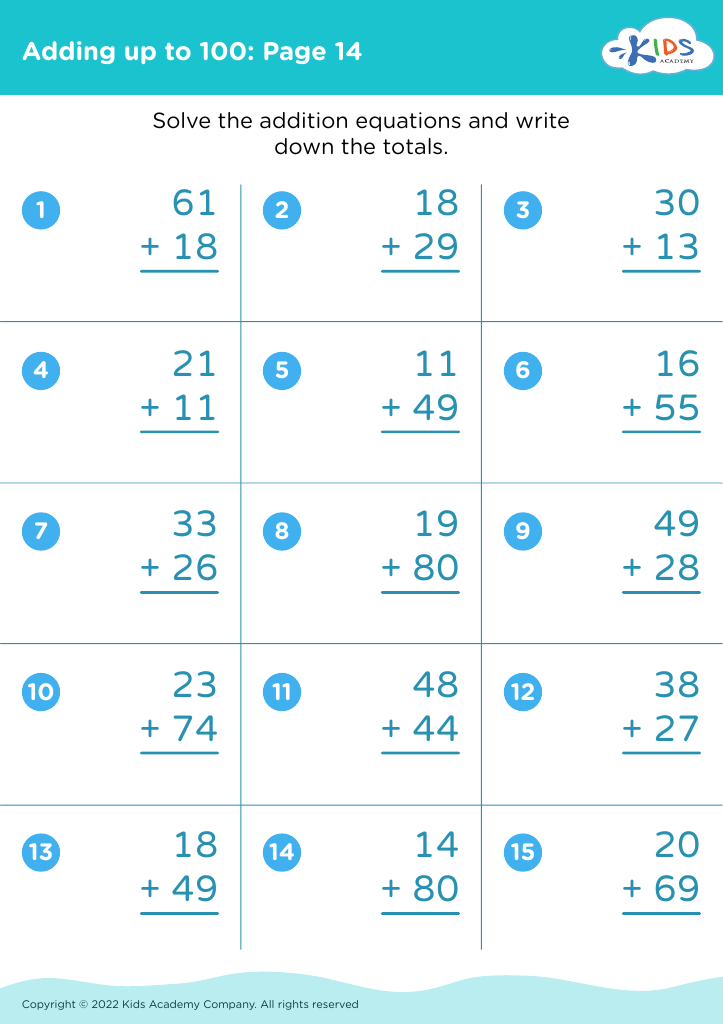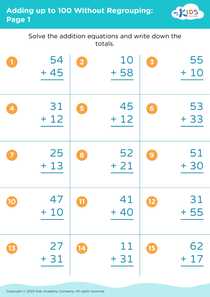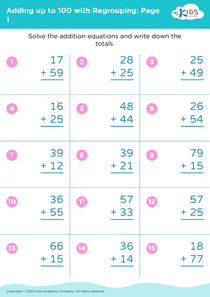Addition Practice Adding up to 100 Misc Worksheets for Ages 3-8
3 filtered results
-
From - To
Enhance your child's math skills with our engaging "Addition Practice Adding up to 100" worksheets, designed for children aged 3-8. These printable resources provide a fun and interactive way for young learners to grasp essential addition concepts. With a variety of formats and activities, children will enjoy solving diverse addition problems while building their confidence in math. Suitable for homeschooling, classrooms, or extra practice at home, these worksheets cater to different learning styles and paces. Empower your little mathematicians as they embark on their journey to mastering addition, developing foundational skills needed for more advanced math concepts!
Parents and teachers should care about addition practice for ages 3-8, particularly activities that focus on adding up to 100, as this skill lays a solid foundation for a child's mathematical development. Early exposure to addition helps children develop a strong understanding of number sense, which is crucial for their overall academic success. Engaging in addition practice encourages critical thinking, problem-solving, and enhances cognitive abilities.
Learning to add can be enjoyable through fun activities, games, and visual aids, making the process engaging for young learners. This enjoyment fosters a positive attitude toward math, alleviating anxiety and building confidence in their abilities. By mastering addition, children are not only prepared for more complex mathematical concepts in later grades but also develop skills required for everyday life, such as budgeting or measuring.
Additionally, practicing addition helps improve fine motor skills through hands-on activities (like using counters or drawing), enhancing a child's coordination. By investing time in addition practice, parents and teachers contribute to a child’s holistic development, ensuring they are well-equipped with essential life skills and a strong foundation for future learning. Ultimately, supporting children during these early years promotes lifelong learning and a fruitful relationship with mathematics.
















